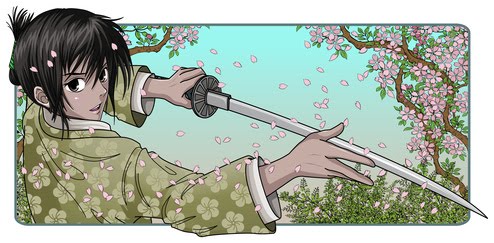I’ve been thinking quite a bit about self-pub and
self-promotion. I mean, that’s really the doom of the indie author. And there
are a few important things to understand about going this route as a writer.
1. Why do we go self-pub? Lots of reasons, I suppose, but a
common thread is probably the difficulty of getting the attention of a
traditional agent or publisher. But this means foregoing the editorial
assistance of an established professional, as well as the promotional
assistance (dubious as it may sometimes be) of a publishing house. We then have
to supply both of these essential functions on our own, and most of us are not
very qualified at either one.
2. The difficulty of getting published in the traditional
way means that it takes time and a lot of effort. This is typically time spent
perfecting our craft. It’s torturous, and infuriating, but it means we have
time to make ourselves into better writers. Self-pub is easy and almost
instantaneous. There is no gatekeeper to require a minimum level of quality
from us. We have to require this of ourselves. Apart from the need for skills
to support this effort, we also need the patience to carry it out.
3. Promotion is a dangerous game. It’s tempting to put a
book out there and then crank up a promotional campaign from scratch using
social networking tools, blogs and emails. But we run the risk of making
ourselves ridiculous or annoying. Ridiculous because our efforts may appear
inept to the very audience we seek, annoying because we are not likely to know how
to modulate our efforts to what our market will bear. It’s all too common to see
new indie authors continually flogging their work on Twitter to a few hundred,
or even a few thousand followers. They generate sales this way, but there may
be a hidden cost in alienating contacts.
4. The simple insight all of us tumble to eventually is that
self-promotion works better the more titles you have in your catalog. It’s hard
to sell just one book. But if you have several titles out, your task is much
easier. This is partly a function of the psychology of readers, who often favor
series over stand alone titles, but also an effect of our sales expectations.
More titles means we are satisfied with small sales for each of several titles.
The conclusion I come to from all of this is that patience
is the central challenge for an indie author, the patience to write more, and
to learn to write better, and to build a following gradually. The dream of
making money in a hurry by selling ebooks is not a writer’s dream. Traditional
agents and publishers may have squandered the confidence of the writing public
and, in part, the reading public by catering too exclusively to perceived
market forces, and favoring safe, formulaic material. But even if that is true,
it doesn’t change the other side of the equation, that they have the
professional skills needed to polish a work and bring it effectively to market.
The only way for a self-pub author to make up for the lack of these skills is
to trust to patience.
As a practical matter, I think this means that until you
have several titles you are really satisfied with, and until you have built up
a following of people who find you interesting apart from the fact that you
have a book to sell, there is no need to feel any pressure to promote your
book. Writing is a long, slow process. Rushing it only delays your own
development as a writer.

Thank you for this insightful post, Spencer. It's full of truths. In life we have to be patient, so why not with our success as writers as well? It's a lesson that needs retelling.
ReplyDeleteThanks, Spencer. It's good to hear from you, as always.
ReplyDelete